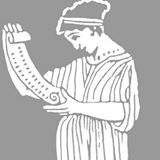Publisher's Synopsis
‘Across the tracks there was a different world. The long and lonely country was the color of sand. The horizon hills were haze-black; the clumps of mesquite stood in dark pools of their own shadowing. But the pools and the rim of dark horizon were discerned only by conscious seeing, else the world was all sand, brown and tan and copper and pale beige.’
A young doctor named Hugh Densmore is driving his mother’s white Cadillac along the highway from L.A. to Phoenix on his way to his niece’s wedding. Out in the desert, fifteen miles from the nearest town, he spots a shadow lurking under a lone tree: a hitchhiker. She seems to be in some sort of trouble. He agrees to give her a lift, but even after he drops her at the bus station, why is he the one looking over his shoulder? And then, a few days later, her dead body is found in a canal….
Dorothy B. Hughes, a contemporary of Raymond Chandler and Dashiell Hammett, first showed her flair for mid-century noir in novels like In a Lonely Place, but in her 1963 thriller The Expendable Man she powerfully evokes the social, moral and racial tensions of the period to reveal the dark reality of life in the American South-West for both women and men.
























